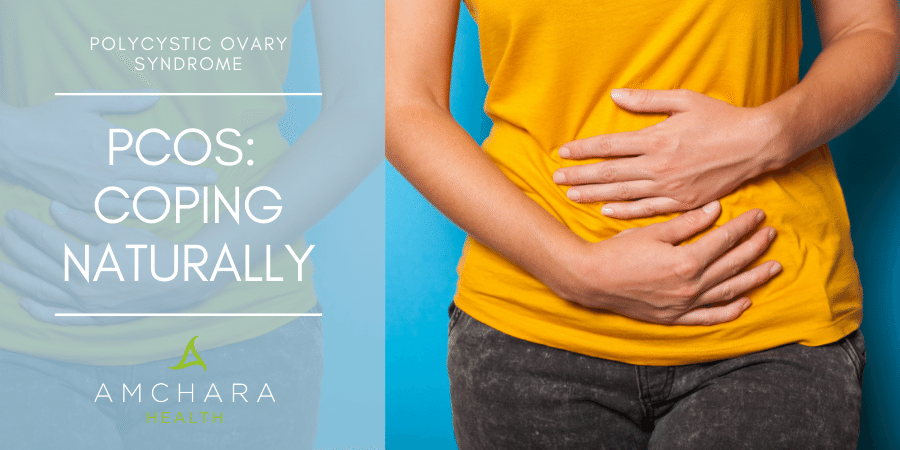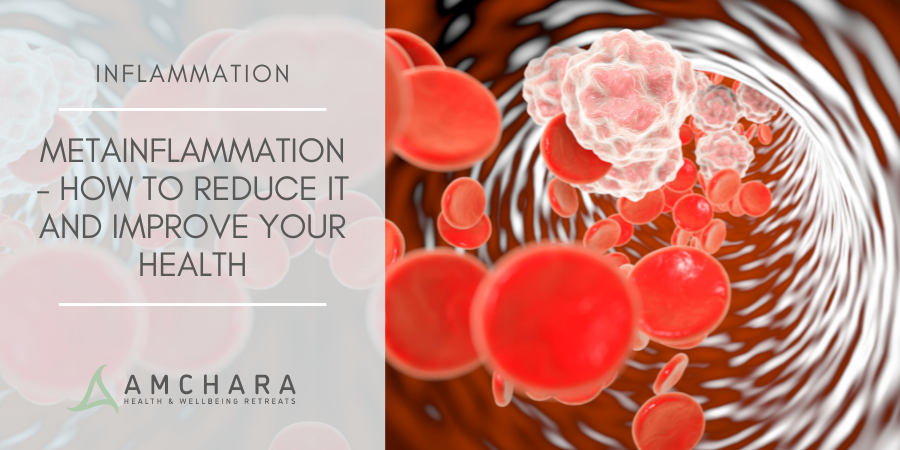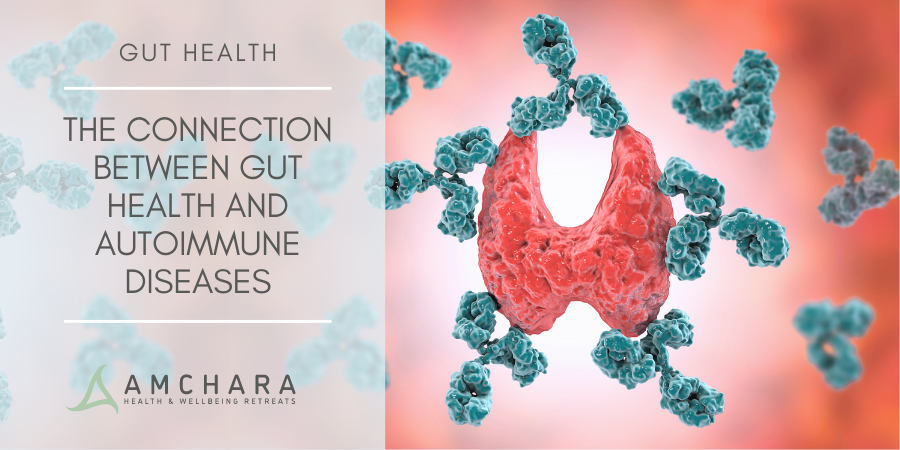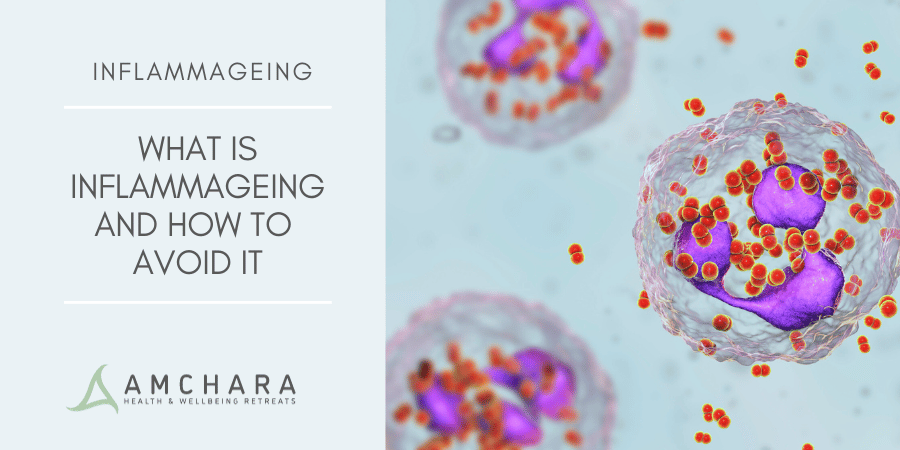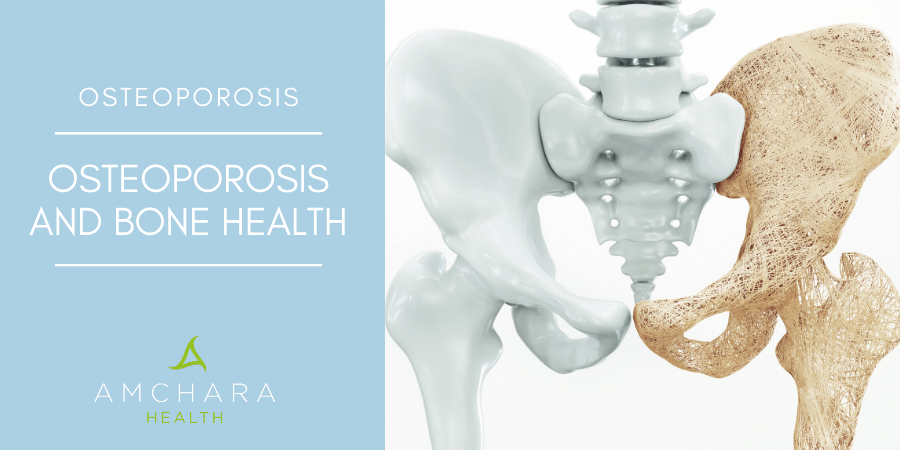Topics Covered in this article:
One of the biggest worries for women with polycystic ovary syndrome (PCOS) is the negative effect it may have on their chances of pregnancy.
Although the actual cause of PCOS is not yet known, dietary and lifestyle factors play an important role in the prevention and management of this syndrome, which means if you are a PCOS sufferer you may have more control over your fertility than you think.
We always take an evidence-based approach and in this article we examine typical symptoms of PCOS and the factors that can contribute to this syndrome.
We also provide you with nutrition and lifestyle suggestions that may help regain hormone balance and reduce the need for medical intervention.
Polycystic ovary syndrome (PCOS) is one of the most frequently encountered endocrine disorders amongst women of reproductive age, affecting approximately 3% to 10% of the population. (1)
It is characterised by several hormonal disturbances that present with anovulation, hyperandrogenemia and amenorrhea.
These abnormalities result in high levels of luteinising hormone, low levels of progesterone and high levels of testosterone, all of which indicate an absence of ovulation or evidence that the body is struggling to ovulate. (2)
In physical terms this means that a woman’s ovaries increase in size, due to the presence of a large number of follicles that fail to mature and release the eggs they are carrying.
1. Symptoms of PCOS
Obesity is one of the most common symptoms of PCOS, however it can also occur in people who exercise excessively or have very low body weight.
About 20% of PCOS sufferers are of normal weight.
The lack of ovulation can cause irregularities in a woman’s menstrual cycle, which may result in changes in the flow of blood and the duration of menstruation.
Other symptoms include:
- Acne
- Hirsutism (abnormal hair growth and pattern)
- Weight gain
- Failure to ovulate
- Failure to menstruate
- Inability to lose weight
Women with PCOS may have one, all or any of these complaints – they also have at least seven times the risk of heart disease and heart attacks compared to other women. (3)
With PCOS there is also an increased risk for a number of other health conditions including insulin resistance, dyslipidaemia, Type 2 diabetes, infertility and hyperestrogen-related cancers, such as endometrial and breast cancers. (4)
2. Causes of PCOS
How PCOS originates is not completely clear and the underlying defect in polycystic ovaries is still unknown.
However, the growing consensus is that genetics plays a part as well as diet and lifestyle factors, such as glucose intolerance, obesity and insulin resistance.
Insulin resistance seems to be one of the key features of PCOS, regardless of weight.
Some studies have suggested the presence of insulin resistance is independent of obesity and is also found in normal weight patients with PCOS.
The link between insulin resistance and PCOS may be significant in terms of lowering insulin resistance, which can potentially improve reproductive function in some women with PCOS.
The molecular mechanisms leading to the insulin resistance in PCOS are not well understood, but oxidative stress has been implicated.
There is also growing evidence of a link between chronic stress situations and multiple hormonal imbalances.
3. Diagnosing PCOS
PCOS is a difficult condition to diagnose, mainly because the range of symptoms is very similar to other endocrine disorders, such as Cushing’s disease and congenital adrenal hyperplasia.
In the first instance, investigations for PCOS are initiated because of an absence of menstruation or menstrual cycle irregularities, together with excessive hair growth.
Following this the likelihood of PCOS can be evaluated with a series of blood tests.
The next step is to establish whether a patient has insulin resistance.
It may also be necessary to test for thyroid function and prolactin levels, depending on the combination of symptoms a woman has.
The final investigation will be an ultrasound of the ovaries to determine whether there are multiple ovarian follicles.
Once other endocrine conditions have been ruled out, a diagnosis of PCOS is made, dependent on several of the following clinical or biochemical signs:
- Elevated fasting insulin
- Hirsutism
- Polycystic ovaries
- Elevated free androgen index
- Irregular ovulation
4. Contributing factors
PCOS is closely linked with nutritional intake and specifically foods that are high in refined carbohydrates such as sugar, sweets, chocolate, biscuits, fizzy drinks, pasta, white bread, white rice and alcohol.
- A high intake of sugar stimulates the production of insulin in the body – the hormone that promotes the uptake of glucose into the cells, where it can be utilised for energy.
- Any excess sugar is transported to the liver by insulin where it is converted into glycogen (sugar storage molecule) or into triglycerides and stored as fat.
- As glucose is a reactive molecule, high levels generate reactive oxygen species (ROS). (5) This leads to oxidative damage in the ovaries as well as the muscle cells, which may begin to develop a resistance to the action of insulin.
- Insulin resistance reduces the ovary’s ability to receive messages from luteinising hormones, which stimulate the follicles to grow and release eggs.
- This build-up in the number of follicles and lower rate of ovulation creates cycles of irregular length and lowered levels of progesterone.
- The presence of high levels of insulin in the body may also lower the natural conversion rate of testosterone into oestrogen. The high level of testosterone produces symptoms of acne and irregular hair growth patterns.
- Lowered levels of oestrogen and progesterone means menstruation may stop altogether.
- Excessive exercise or lowered food intake may also produce high levels of adrenal activity, which in turn increases testosterone, high blood sugar and insulin production. All of these factors can affect hormones in a similar way.
5. A natural approach to PCOS
Menstrual disturbances and anovulation appear to be more common amongst obese women with PCOS compared to those of healthy weight.
In terms of fertility, obese women also have greater long term difficulty in conceiving. (7)
Because of the potential side effects of many medications, weight reduction of obese patients is considered the primary goal of treatment.
It has been shown that short term treatment of obese PCOS women on a very low calorie diet (350-450 kcal per day) leads to a significant fall in serum insulin.
Research confirms that long term calorie restriction and weight reduction not only improves hormone levels, but also restores regular ovulatory menstrual cycles, lowers testosterone levels and has a striking impact on fertility. (8)
Nutritional recommendations:
- Reduce intake of all refined carbohydrates such as sweets, chocolate, cakes, biscuits and alcohol.
- Eat foods high in fibre. These foods release glucose more slowly, reducing the production of insulin. Foods that are high in fibre include whole grains, nuts, seeds, fresh vegetables, legumes and pulses.
- Reduce caffeinated drinks and fizzy drinks loaded with sugar. Do not be tempted by low sugar alternatives.
- Keep fruit intake low until symptoms reduce and menstrual cycle normalises.
- Avoid fruit juices, unless they are well diluted with water and consumed in moderation.
- Make sure each meal contains a good portion of protein. This can be from lean chicken, fish, eggs, tofu, beans, quinoa and brown rice. Dairy protein is not advised as it may aggravate an existing problem with acne.
- Avoid pro-inflammatory foods such as red meat and dairy products.
- Eat foods rich in phytoestrogens which may help normalise the menstrual cycle. These include non-GMO fermented soya products, lentils, beans and chickpeas.
- Drink plenty of liver cleansing teas such as dandelion and fennel.
Supplement recommendations:
Diet composition as well as quantity is an effective strategy for PCOS patients aiming to reduce their symptoms.
Focusing on specific micronutrients should be considered an important part of a treatment plan.
- Antioxidants such as vitamin C and vitamin E may be a useful approach to countering oxidative stress, one of the factors implicated in PCOS. Studies on vitamin C show that serum concentrations are lower in PCOS patients than in control subjects, and the same applies to circulating vitamin E concentrations.
- Chromium helps to produce a hormone called glucose tolerance factor, which increases insulin sensitivity.
- B vitamins aid the production of glucose tolerance factor, help cells utilise glucose for energy production and are involved in hormone balance.
- Vitamin D deficiency is very common amongst women with PCOS and evidence suggests that a deficiency could contribute to the development of insulin resistance and obesity. (9)
- Zinc is thought to help with appetite control and regulating hormones.
- Magnesium improves insulin mediated glucose uptake, helping to maintain blood sugar balance and hormone homeostasis.
- EPA and DHA found in omega-3 fish oils play an important role in increasing insulin secretion and regulating blood sugar. Omega-3 fatty acids also have powerful anti-inflammatory properties, which may help to reduce the chronic inflammation seen in patients with PCOS.
- Phytoestrogens may help to gently raise oestrogen levels, potentially normalising the menstrual cycle.
- Resveratrol is a powerful phytochemical found in red grapes and red wine. There is evidence that resveratrol exerts a suppressive action on insulin release.
- Rhodiola a traditional herbal remedy which helps the body adapt to stress, a key factor in hormone imbalance.
Lifestyle advice
- If you are overweight try to do more exercise.
- If you are underweight and exercise a lot then aim to reduce the amount of exercise you are doing and eat regular meals.
- Do not miss meals.
- Take steps to reduce and manage your response to stress as this may increase fluctuations in blood sugar.
- Reduce your exposure to environmental toxins and heavy metals as these are shown to be endocrine and hormone disruptors.
Message from Amchara
Are you living with PCOS? Have you found that nutrition and lifestyle changes make a difference?
Lots of women out there would love to hear your feedback, so help us to help them by sharing your experience.
If you are struggling with PCOS, complimentary consultations are available with Amchara’s Personalised Health professionals to help you optimise your health.
READ THIS NEXT:
